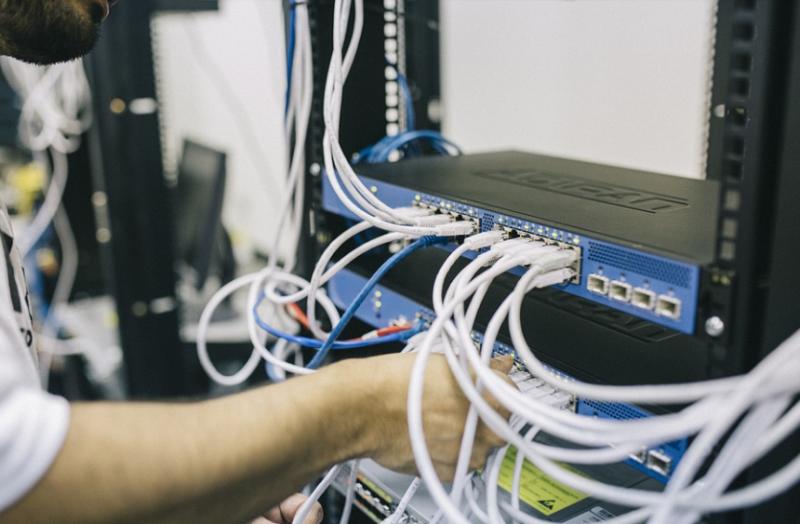For any business to survive in today’s scenario, it is essential to have an uninterrupted network connection. While the other aspects are equally important, technology has become an integral part of our lives and an active network connection is the only way to stay in touch with the outside world.
From sharing information, solving a customer’s complaint to releasing a new product or service into the market, network connectivity is essential. We have come a long way from using a dial-up connection to preferring fiber optics for network connectivity. Even household connections are being supplied using fiber optics. In such instances, it makes sense to use the same for business enterprises.
One thing many enterprises worry about fiber networks is the initial cost of investment. Compared to copper cables, fiber optics is costly. And for an enterprise to have internet connectivity throughout the office, it could be quite an investment. Moreover, enterprises tend to think that as long as their existing network connectivity is good they don’t have to upgrade to a better version.
In this blog, we are going to see why it is advantageous for enterprises to use Fiber Network Services For Business and how they can get the maximum out of the initial investment. The returns are usually seen more in the long term which is also one of the reasons enterprises tend to hesitate.
Check Also: Guide to Install Indoor Fiber Optic Cables!
Table of Contents
• Cloud Connectivity
- Migrating the business system to the cloud platform is yet another latest move we can see in the industry. Hosting servers and applications on the cloud and reducing the bulk of hardware used on-premises is saving enterprises a lot of money.
- But to connect to the cloud, enterprises will need a fast and powerful internet connection. Hosting on the cloud means every application and software has to be accessed through the internet. If the bandwidth is low, the speed of the internet connection will slow down.
- Employees will have to wait while the software is loaded or the data is transferred from one system to another. If an enterprise is using cloud services, the fiber network is the best way to stay connected at all times.
Check Also: Things you need to know before buying Carbon fiber sheet
• Signal Strength
- We know that the best way to get a maximum signal is by sitting near the switch or the device that provides the internet. As we move further away, the signal strength decreases. Though this is not much of an issue for home internet, this can cause a lot of problems for enterprises.
- In a widespread office, employees from every nook and corner of the office have to have the same network speed to do their job. Fiber optics ensures that the signal strength is steady throughout the location.
Check Also: How can one house have two separate ISPs?
• Bandwidth
- Most enterprises today need a high-speed internet connection. With such increasing demands, enterprises end up reaching the limit of the bandwidth sooner than expected.
- Even if Fiber Network Services For Business doesn’t offer fully unlimited bandwidth, it is higher than the rest of the internet connectivity options and can sustain the speed of the connection despite the heavy load.
- SIP trunking, File sharing, Cloud applications, web/ video conferencing, and streaming HD videos are some activities that require high-speed and stable network connectivity with a wider bandwidth.
• Latency
- The delays that occur while processing information over the internet are described using the term latency.
- A good internet connection should have low latency implying that it doesn’t delay the processing and transferring of information.
- Fiber optics network connection has low latency and enables better voice quality for VoIP calls.
- It makes it easier to move applications to the cloud. Downloading and uploading of data takes less time.
- A faster and reliable internet connection enables employees to communicate and collaborate better and thus results in increased productivity.
• Resistance, Reliability, and Security
- Copper cables are easily affected by the changes in the weather. Electromagnetic fields can also cause interruptions. In enterprises with heavy machinery, it becomes essential to use fiber optic cables which are resistant to external changes.
- And this resistance makes fiber network a reliable and secure option. Compared to copper cables, the only way a fiber network can be sabotaged is by directly cutting the cable. The information transferred through the fiber network is not easy to hack.
Check Also: 4 Ways to Get Better Internet Service for Your Business
• Symmetric Speed
- Equal upload and download times are usually referred to as symmetric speed.
While it is not compulsory for the network connection to provide symmetric speed, it is beneficial when employees upload video content, making VoIP calls while downloading a file. Employees who multitask find it convenient when the upload and download times are equal. We can see that the fiber network has a lot of advantages to offer to enterprises.



